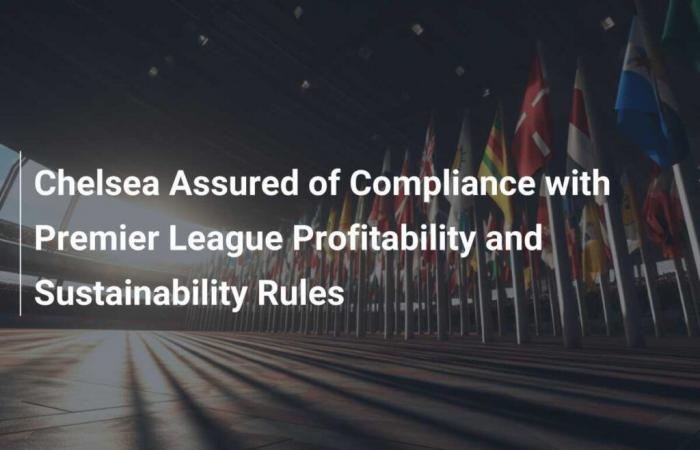Chelsea Football Club’s management are displaying a remarkable level of confidence regarding their compliance with the Premier League’s Profitability and Sustainability Rules (PSR) as they approach the end-of-year submission deadline.
Led by billionaires Todd Boehly and Behdad Eghbali, who took control of the club in the summer of 2022, the club has made substantial investments in player acquisitions. However, this aggressive spending resulted in reported losses of £90.1 million for the financial year ending June 30, 2023, following a spectacular loss of £121.4 million the previous year.
Despite these figures, sources close to Chelsea are resolutely optimistic, saying the club remains well within the constraints of the PSR which allows maximum allowable losses of £105 million over a three-year cycle. With the deadline for submitting their PSR calculations approaching on December 31, it is imperative that clubs with combined losses in their 2021-22 and 2022-23 financial reports comply accordingly.
Read more:
Raheem Sterling reveals Aaron Wan-Bissaka is his toughest opponent
Failure to comply could result in action by the league as complaints must be made within 14 days of the date of submission, which could lead to referrals to an independent commission as outlined in the ‘standard guidelines’ ratified by the clubs in the summer of 2023.
Last season, the Premier League acted quickly against Everton and Nottingham Forest, with complaints issued by mid-January and resolutions reached before the end of the season.
Clubs can strengthen their PSR calculations through investment in areas such as infrastructure, youth academies, charitable initiatives and women’s football, which are classed as ‘adds’.
Read more:
Gary Neville Criticizes Manchester United After Disastrous First Half Against Newcastle
Reports indicate that Chelsea have complied with all relevant regulations, allowing the inclusion of profits from the disposal of ‘fixed tangible assets’ to entities associated with the club, provided that such transactions reflect fair market value. The recent sale of two hotels linked to the owners has apparently received approval from the Premier League, and the club has also transferred ownership of its women’s team to its parent company, a transaction currently under scrutiny by the league.
A proposed amendment to close a loophole related to such deals failed to gain the necessary support from 14 clubs at the league’s annual general meeting in June, with only 11 in favor.
In August, Premier League chief executive Richard Masters expressed his appreciation for clubs seeking to gain competitive advantages within the rules.
Meanwhile, Manchester United revealed a loss of £113.2 million for the financial year ending June 30, 2024, but remains confident of compliance when taking all variables into account. Similarly, Nottingham Forest sources have expressed certainty regarding their PSR assessment following last season’s sanctions. Everton have not made a public comment but are understood to share a confident outlook.
This season, the Premier League is trialling new financial control measures that could redefine the PSR landscape for the 2025-26 season and beyond. These include squad cost rules (SCR) capping spending on player salaries and amortization costs at 85% of a club’s football revenue, combined with top-down anchoring ( TBA), which limits spending compared to the Premier League’s smaller central allocation of television rights and premiums.
However, the Professional Footballers’ Association has expressed concerns about the anchor, stating its intention to oppose measures perceived as salary caps and has engaged renowned sports lawyer Nick De Marco KC on the subject.
Relatedly, Masters revealed in August that a separate investigation into Chelsea, relating to alleged financial misconduct during Roman Abramovich’s ownership, is nearing completion. This investigation was triggered by the new owners’ proactive reporting of potentially unresolved financial discrepancies identified during the takeover process to the Premier League and other controlling entities.






